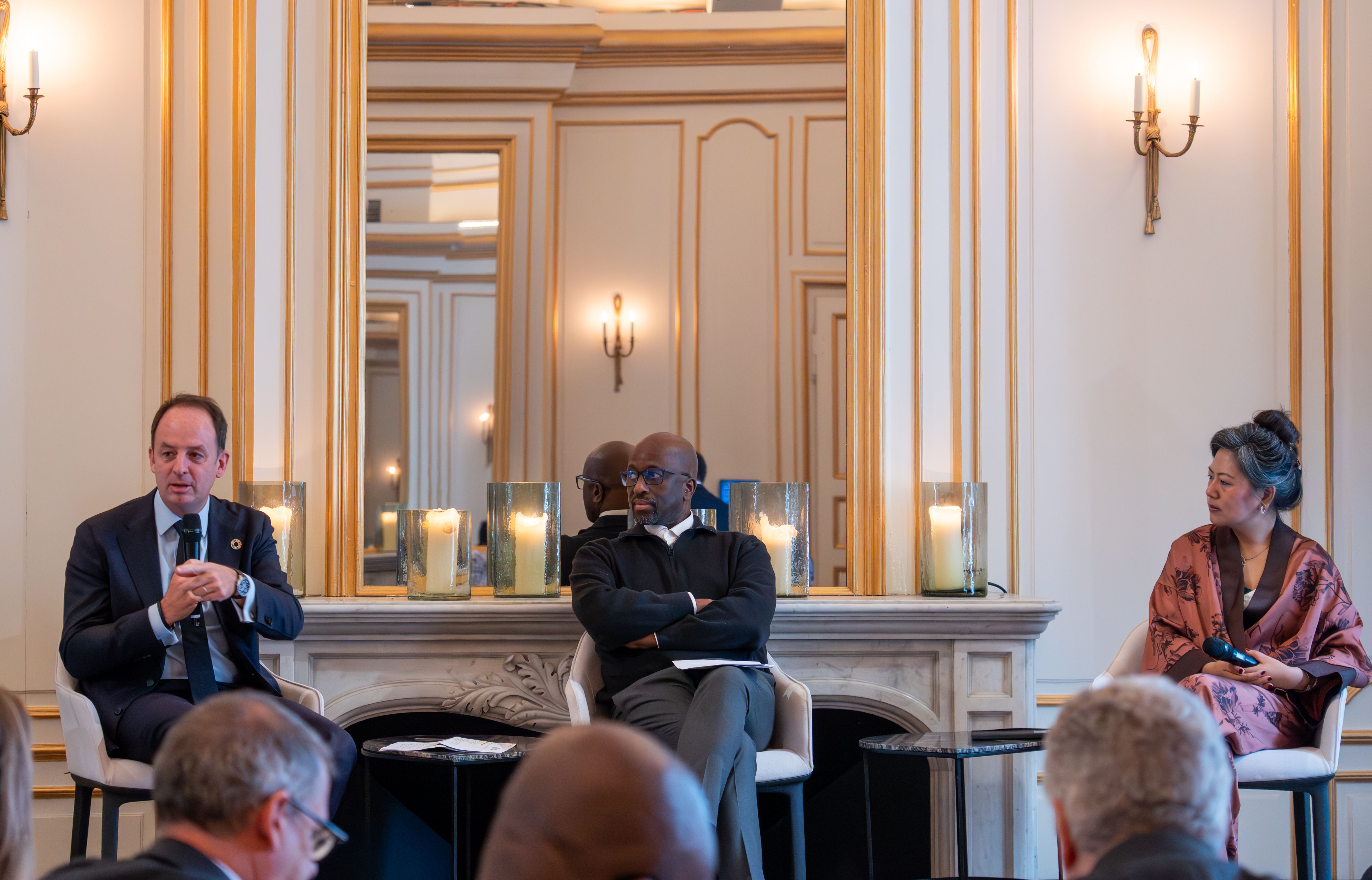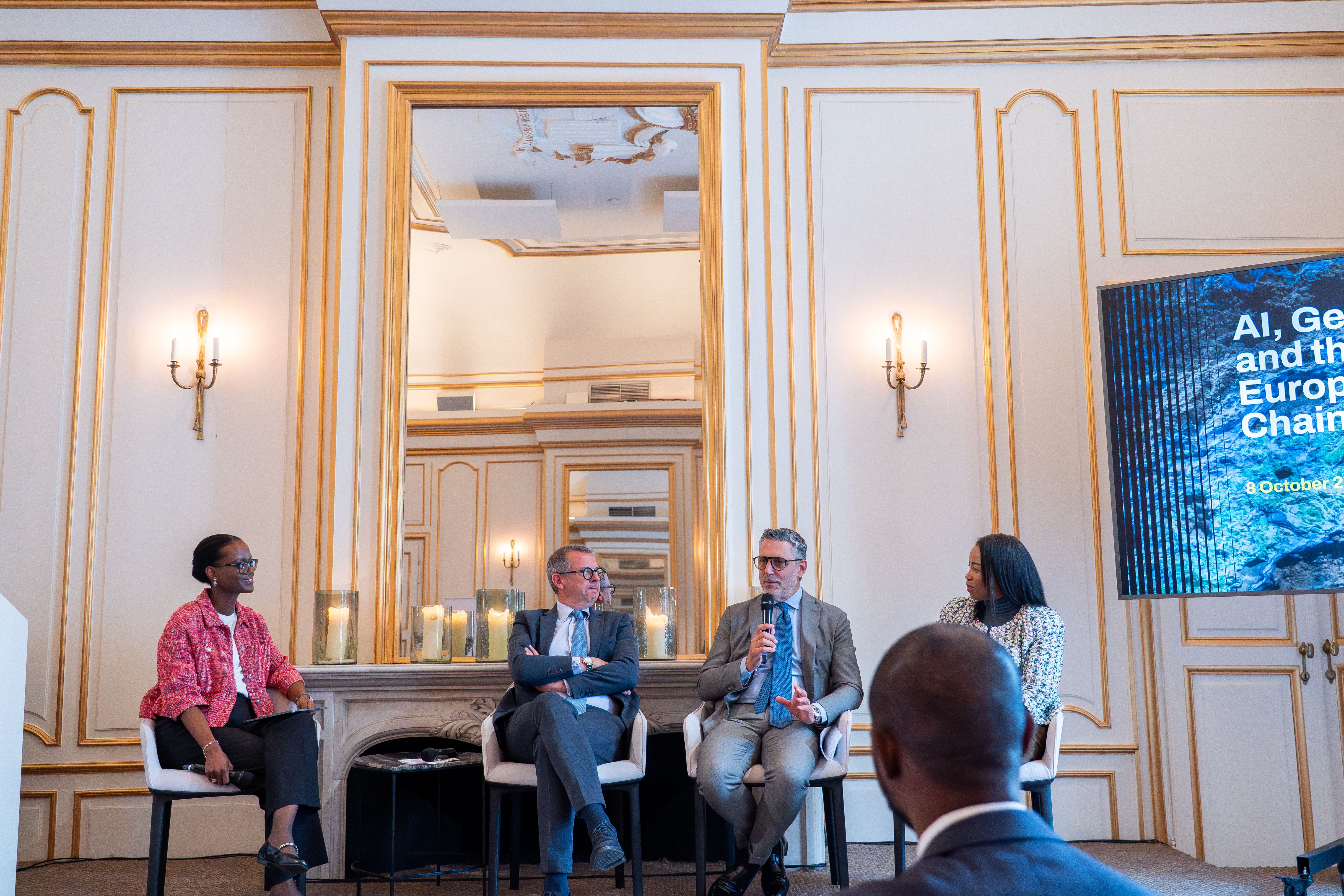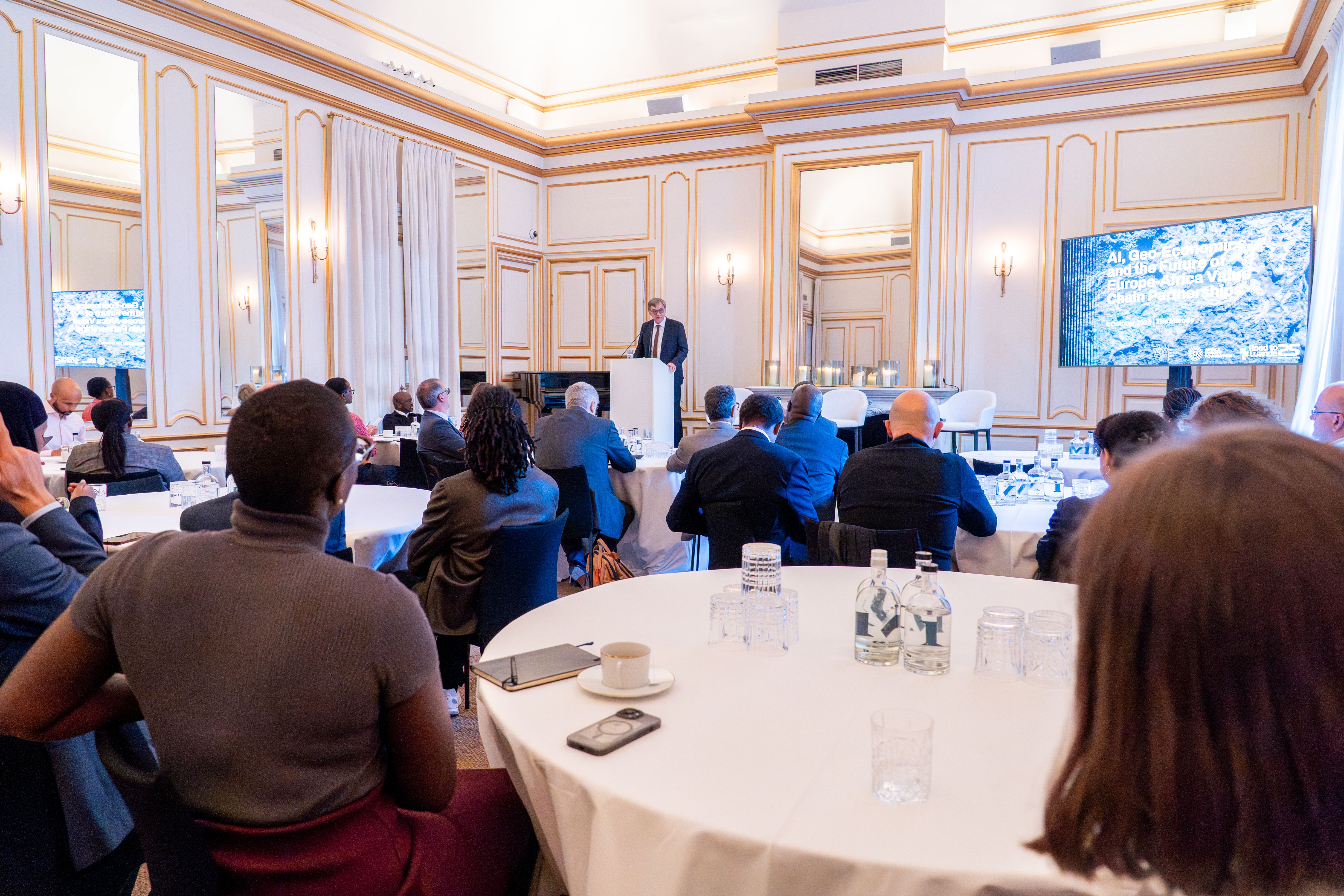- Digital
- #RoadtoLuanda25
Outcome Note: Strategic Dialogue on AI, Geo-Economics, and Africa–Europe Value Chain Partnerships
- The Africa-Europe Foundation

The Africa–Europe Foundation (AEF) in partnership with the Brussels–Africa Hub convened a Strategic Dialogue on AI, Geo-economics, and the Future of Africa–Europe Value Chain Partnerships. The meeting, held on 8 October 2025 — one day ahead of the Global Gateway Forum — gathered senior diplomats, business leaders, and experts to explore how Africa and Europe can jointly shape the emerging AI era.



AI as a Geopolitical Turning Point
Participants agreed that artificial intelligence is not only an industrial revolution — it is a geopolitical one.
Africa holds three defining advantages in this new era:
- Critical minerals: The continent hosts around 40% of global reserves of transition minerals essential for AI, batteries, and renewable technologies, and produces over 70% of the world’s cobalt.
- Renewable energy: Africa accounts for 60% of the world’s best solar potential and vast hydropower capacity — critical to power AI’s energy-intensive infrastructure.
- Youth and talent: With a median age of 19 and a projected 1.3 billion working-age population by 2040, Africa represents the world’s fastest-growing source of digital and scientific talent.
From Interdependence to Co-Sovereignty
As the European Commission unveils its new AI Strategy centred on technological sovereignty, the dialogue underscored a historic opportunity to align Europe’s pursuit of innovation and autonomy with Africa’s ambition for industrial transformation and digital empowerment.
Speakers stressed the need to move beyond interdependence toward co-sovereignty — a partnership where Europe builds technological resilience while Africa secures digital and industrial autonomy.
Three Shared Challenges and Opportunities
-
Strategic Resources – AI and green technologies depend on Africa’s critical minerals: copper for connectivity, lithium and cobalt for batteries, and rare earths for computing. Yet, less than 10% of these resources are processed locally. Europe brings capital, technology, and ESG standards that can help build local processing and manufacturing capacity — anchoring a “mineral-to-digital” value chain from African mines to African data centres powering AI ecosystems.
-
Energy Systems – The training of large AI models consumes massive amounts of energy. Africa’s renewable potential — equivalent to 1,000 times its projected 2040 electricity demand — positions it to become a hub for low-carbon data centres. European investment, grid integration, and storage technology can support a sustainable digital– energy nexus, making AI sovereignty dependent on energy sovereignty.
-
Human Capital and Financing – Europe faces a shortage of one million AI and data professionals by 2030, while Africa’s youth represent a vast and underutilised talent reservoir. Joint investments in education, digital skills, and entrepreneurship are essential. Financing opportunities exist — from EU Global Gateway, EIB, and InvestEU instruments to private and diaspora capital — but the key challenge lies in channelling resources into bankable, scalable projects that advance stability, productivity, and sustainable growth.
A New Africa–Europe Narrative
The dialogue closed with a shared conviction: the convergence of Europe’s AI strategy and Africa’s digital ambitions lies in their complementary strengths. Africa brings minerals, energy, and youth; Europe brings capital, technology, and governance.
As the world enters a new multipolar era, participants called for a co-sovereign partnership — one that turns mutual dependency into mutual strength, ensuring Africa and Europe rise together in the age of AI.